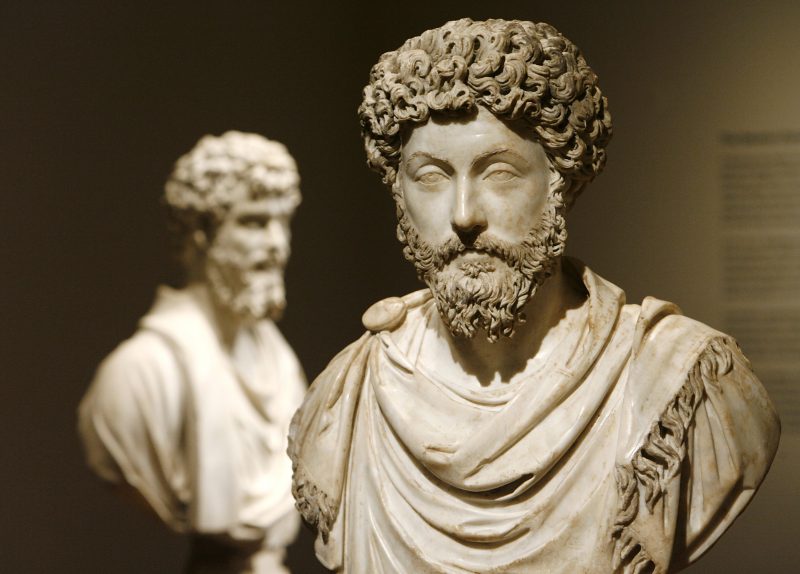[player id=2707]
Ancient Stoicism
“You devote yourself to pleasures, I check them; you indulge in pleasure, I use it; you think that it is the highest good, I do not even think it to be good: for the sake of pleasure I do nothing, you do everything.” -Seneca
Stoicism is a philosophy, in the ancient meaning of the word. Although there are many branches of philosophy, many of which ask extremely esoteric questions that may never be answered, one branch of philosophy is not only practical, but useful to study, debate, and decide on your own answer. That branch is eudaimonia, which asks the question, what is the nature of a well lived life?
Stoics primarily concerned themselves with this question, and the answer they came to is that a well lived life is a life of virtue. Pleasure, wealth, health, power, these are all neutral to the concept of living a good life, living with virtue in accordance with nature was all that mattered. To this end the Stoics believed that joy was strictly an internal state and sought methods to disconnect the joy and tranquility they felt from their external circumstances.
Modern Stoicism
Everything can be taken from a man but one thing: the last of the human freedoms — to choose one’s attitude in any given set of circumstances, to choose one’s own way. -Viktor E. Frankl
Modern stoics do not necessarily believe in naturalistic virtue, although many religious stoics place the virtues handed down by God as their highest calling. However, the role of virtue has not lost any meaning. In fact, pursuing meaning despite the circumstances you find yourself in is the highest calling of the modern stoic. Stoics seek to be virtuous and serve their fellow man and pursue joy by internal, rather than external means. There are many mental techniques stoics use to keep their tranquility intact. These techniques will receive their own essays in the future, but here are a few examples.
- Negative Visualization- To imagine loss does two things for the stoic, first it provides appreciation for the things they have, and second if the loss does occur, the stoic is prepared for it and understands that there will still be sources of joy.
- Memento Mori- Remember you are mortal, what ever insult, whatever pain, whatever loss you have suffered will one day be gone and remembered by no one, you only disrupt your own tranquility holding on to your pain.
- Practice Poverty- Whatever you have may be temporary, and you could lose everything to fate. Taking time to voluntary practice poverty prevents luxury from taking our tranquility should we lose it. Enjoying a simple meal, or even fasting for a day, you still live and breathe and may still feel joy.
Who am I
I am a student of the stoics, I have just begun walking this path, but it is a path I am committed to. I am a modern man, raised in a culture of consumerism that has taught me that happiness is obtained by trading green paper for objects. I am a rich man, fortunate in life and able to participate in hedonistic consumerism but trying to choose not to. I am flawed, emotional, and distractible. In this series of essays, I will seek to expand on Stoicism and my own journey. I will reflect on my apprehensions and failings, and attempt to balance self-denial with the fortunate life I have. I am a student, but also a teacher; to share and test my knowledge will only expand it. I will teach what I know, and I will learn from those of you that wish to participate in the conversation. I am carefully, slowly, and unsteadily Becoming Stoic.


